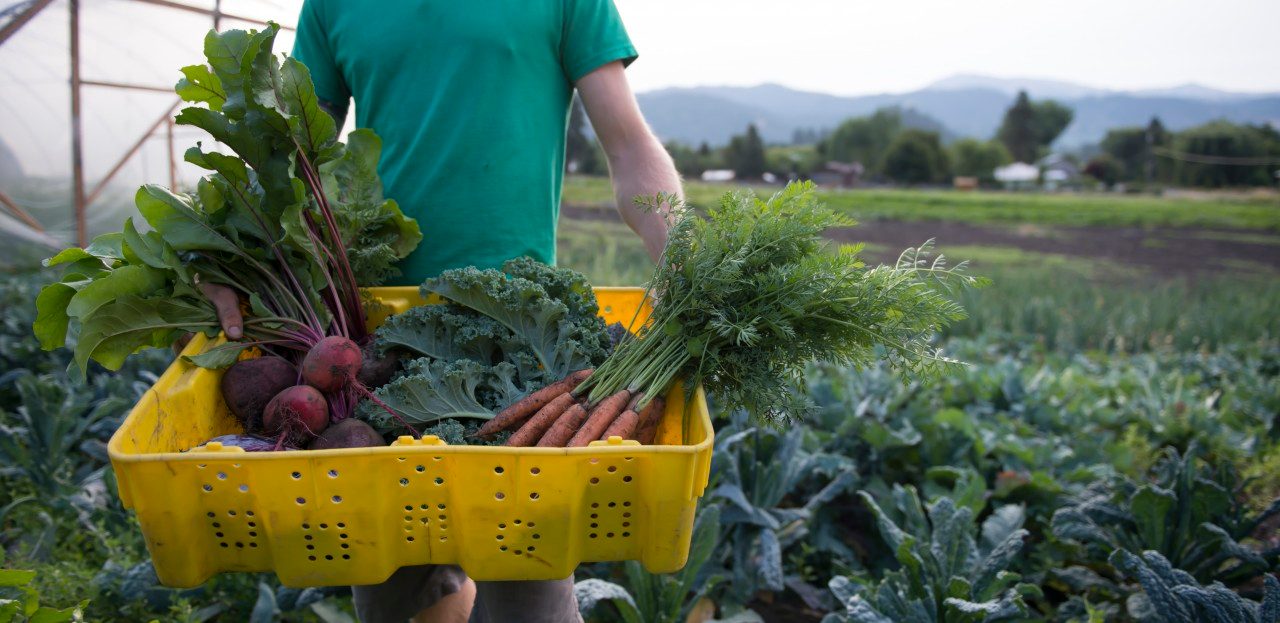How to Avoid Pesticides with Organic Foods

The demand for organic products is growing exponentially, but are there other ways to lower your exposure to chemicals? Here's what you should know.
More and more people choose organic products, despite high prices. The allure is the promise that the items have not been exposed to farm chemicals, which can be bad for your health.
Sales of organic produce — which sometimes have their own section in the produce area of a supermarket — account for 15 percent of all fruit and vegetable sales in the U.S., according to the Organic Trade Association.
With produce leading the way, the value of U.S. sales of organic food overall has passed $60 billion, doubling in a decade. Categories like organic baby food and formula, organic grains, and organic pork have all seen double-digit growth.
YOU MIGHT ALSO LIKE: What Are Antioxidants?
But not everyone can afford to buy only organic products. You have other options. For instance, you can focus on buying organic versions of only some foods that are especially risky, such as blueberries. You can also stick to nonorganic produce that tends to have fewer chemical residues.
Buying organic produce in season from a farmer’s market can lower your costs, buy produce in bulk and freeze it for later use, or you can grow your own.
You could try a neighborhood community supported agriculture (or CSA) group, in which you sign up to receive part of an organic farm’s harvest, typically distributed over the growing season at churches and other public spots.
The case for buying organic
Organic products minimize your exposure to toxic and persistent chemicals on farms and in food, soil, air, and water, reducing public health risks to farm workers, their families, and consumers.
Organic food may be richer in nutrients and healthful omega-3 fatty acids, while protecting you from pesticides, fertilizers, antibiotics, and synthetic growth hormones.
Such chemicals routinely enter your body. The world’s most widely used herbicide (glyphosate) and heavily applied family of insecticides (neonicotinoids) are routinely detected in human urine. Nearly 75 percent of non-organic fresh produce sold in the U.S. contains residues of potentially harmful chemicals, the nonprofit Environmental Working Group (EWG) reports.
In the early 2000s, farmers lowered the risks from insecticides when they switched from phosphate-based chemicals to neonicotinoids, as insecticides are less toxic than herbicides. But exposure to herbicides and fungicides, the most toxic chemicals used in food product, in non-organic food may be increasing.
You’ll hear many claims about organic food. Some evidence suggests that eating organic foods reduces the risk of:
- Becoming overweight and obese
- Non-Hodgkin lymphoma in women
- Preeclampsia during pregnancy
- Eczema in infants
Yet there is no good evidence that organic baby food protects children from allergies. Research also doesn’t show that eating organic foods cuts your risk of cancer or boosts fertility.
Organic farming has other environmental benefits. It does less damage to land and water. Runoff water from an organic operation won’t impart harmful chemicals into local waterways. Because organic farmers don’t use synthetic pesticides and fertilizers, they use less energy than conventional farms.
Risky and safe nonorganic vegetables and fruits
In EWG’s yearly “Shoppers Guide to Pesticides in Produce,” you’ll find its “Dirty Dozen” — a list of non-organic produce containing high amounts of pesticides — and the “Clean Fifteen,” foods to favor even if non-organic.
The EWG analyzes the latest fruit and vegetable testing data from the Department of Agriculture (USDA) and Food and Drug Administration (FDA). As the group notes, “The USDA peels or scrubs and washes produce samples before testing, whereas the FDA only removes dirt before testing its samples. Even after these steps, the tests still find traces of 251 different pesticides.”
In recent tests, several green bean samples had residues of acephate, a toxic pesticide the Environmental Protection Agency banned more than 10 years ago from use on green beans grown for food.
The Dirty Dozen list
- Strawberries
- Spinach
- Kale, collard, and mustard greens
- Peaches
- Pears
- Nectarines
- Apples
- Grapes
- Bell and hot peppers
- Cherries
- Blueberries
- Green beans
The Clean Fifteen foods
- Avocados
- Sweet corn
- Pineapple
- Onions
- Papaya
- Sweet peas (frozen)
- Asparagus
- Honeydew melon
- Kiwi
- Cabbage
- Mushrooms
- Mangoes
- Sweet Potatoes
- Watermelon
- Carrots
What you can do
If you want blueberries and can’t buy organic, make sure you wash them, which helps remove pesticides. Peeling the skin off some produce, for example cucumbers, can also reduce your exposure.
Cooking your food also helps remove pesticides that aren’t dislodged when you wash it.
Updated:
September 19, 2023
Reviewed By:
Janet O’Dell, RN